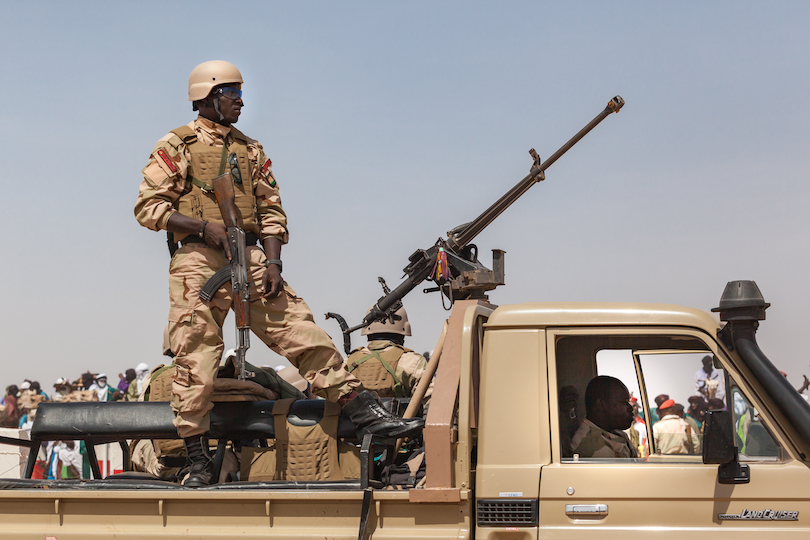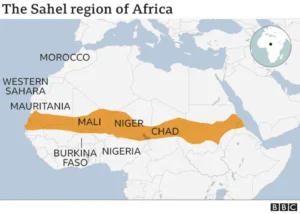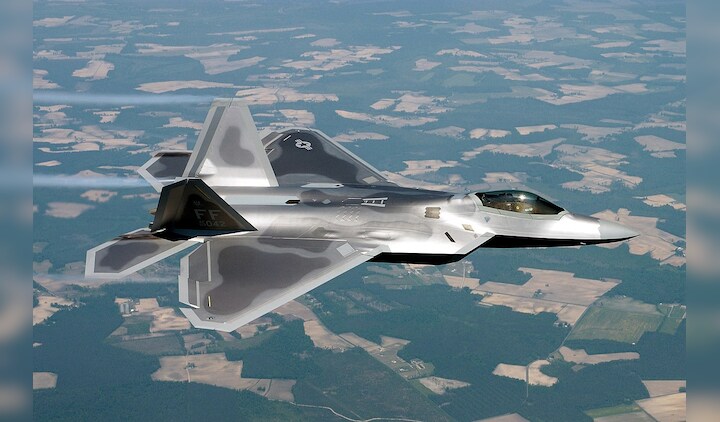
Ingall, Niger - september 2013: Governmental military guard in North Africa Car with armed soldiers
Niger’s Intelligence Crisis Exposes Security Gaps as Jihadist Threats Grow
Niamey, Niger – A sudden breakdown in Niger’s intelligence-gathering capabilities has exposed critical vulnerabilities in the country’s security infrastructure, raising fears of a worsening insurgency in the Sahel region.
Counter-insurgency publication, Zagazola, reports that the Niger Republic’s National Council for the Protection of the Homeland (CNSP) has abruptly terminated technical intelligence agreements with Russia and Turkey, citing their failure to provide effective surveillance, particularly in intercepting terrorist communications. This decision comes just months after the partnerships were touted as crucial to counterterrorism efforts.
Failed Partnerships Leave a Dangerous Void
Security sources revealed to Zagazola that equipment and personnel supplied by both Russia and Turkey fell short of operational standards, forcing Niger’s Directorate-General for Documentation and External Security (DGDSE) to cut ties.
In a desperate bid to fill the gap, Niger Republic turned to a Moroccan firm specializing in communications interception. However, the deal collapsed after authorities discovered undisclosed ties between the Moroccan company and a French private firm—an immediate red flag for the CNSP, which has sought to distance itself from former colonial power France.
“The entire surveillance system was dismantled overnight,” a senior security official told Zagazola on condition of anonymity. “There was no tolerance for any perceived French influence.”
A Return to Outdated Tactics
With electronic surveillance now crippled, Niger’s intelligence agency has been forced to rely solely on human intelligence—a major setback in the fight against jihadist groups like ISIS and al-Qaeda affiliates, which have exploited the Sahel’s instability.

In response, the Presidential Guard has launched covert night patrols in Niamey, deploying plainclothes operatives on motorcycles to monitor high-risk areas, including government buildings and diplomatic zones. However, security analysts warn that such measures are stopgaps, not long-term solutions.
A Region on the Brink
Niger’s intelligence crisis underscores a broader trend in the Sahel, where militant groups are gaining ground amid political instability and weakening state control. Neighboring Mali and Burkina Faso have also faced escalating violence after severing ties with Western military partners.
As Niger scrambles to rebuild its surveillance capabilities, the questions remain: Can the country prevent the Sahel’s security crisis from spiraling further out of control? Can the other former ECOWAS countries in the Alliance of Sahel States (AES) build the military capacity to keep Islamist insurgents at bay in order to grow their economies and return to democratic rule?
Reporting by Zagazola with additional analysis by Slyke Bulletin






More Stories
Nationwide Internet Blackout In Cameroon Amid Post-Election Unrest
ICC Secures Landmark Conviction of Janjaweed Leader
U.S.-Backed Joint Forces Strike Al-Shabaab Strongholds in Major Offensive